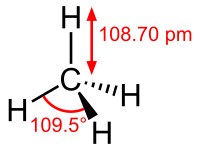
Photo from wikipedia
Diets have become an increasingly important driver of environmental pressures due to greenhouse gas emissions (GHGE), land use and other indicators of environmental impact associated with food production. In the… Click to show full abstract
Diets have become an increasingly important driver of environmental pressures due to greenhouse gas emissions (GHGE), land use and other indicators of environmental impact associated with food production. In the present study we analyse the GHGE and the potential climate change mitigation through dietary changes in a country with high beef consumption, to contribute to the debate on what constitutes a healthy and sustainable diet. Data collected in the National Survey of Household Income and Expenditure 2012/2013 was used to estimate the composition of the current diet in Argentina, and four dietary scenarios were developed following the nutritional recommendations of the National Dietary Guidelines (NDG). We found that the GHGE related to the current Argentinian diet are very high (5.48 ± 1.71 kg CO2-eq/person/day), with beef production contributing to the largest share of emissions (71%). The NDG suggest a 50% reduction of total daily intake of meats compared to current consumption, which, if adopted, would reduce GHGE in 28%, to 3.95 ± 0.96. Further reductions in GHGE appear possible while maintaining a healthy and balanced diet. The scenarios with non-ruminant meats and lacto-ovo vegetarian lead to similar GHGE, 2.11 ± 0.41 and 1.73 ± 0.37 kg CO2-eq/day/person, respectively; and the vegan diet results in the lowest, 1.47 ± 0.34 kg CO2-eq/day/person. Indicators for nutrient efficiencies were also developed. All nutrient efficiencies decreased in diets with bovine meat with respect to the non-ruminant, vegetarian and vegan ones. The results of this study therefore indicate that a set of dietary changes would significantly contribute to lower GHGE. Argentina’s NDG should include the environmental impacts of food consumption with the aim of raising consumer awareness.
Journal Title: Food Policy
Year Published: 2018
Link to full text (if available)
Share on Social Media: Sign Up to like & get
recommendations!